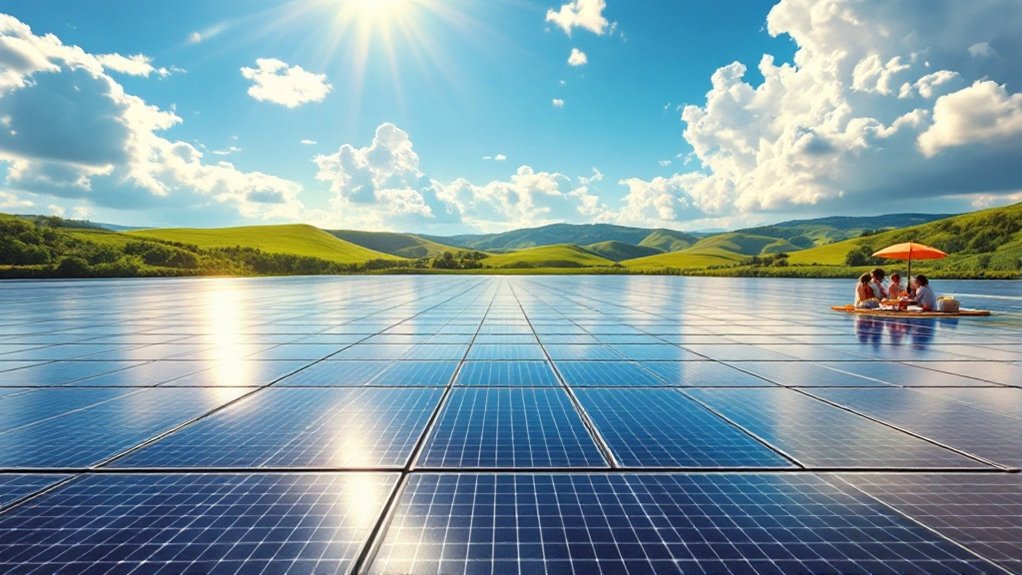
Top Reasons to Invest in Solar Energy Technology
Investing in solar energy technology presents a compelling case for both individuals and businesses. It offers significant long-term financial savings, while also promoting environmental sustainability. The benefits extend beyond personal finances, touching on energy independence and property value. As advancements in solar efficiency continue, potential investors must consider the implications of these developments. What are the most critical factors driving this shift towards solar energy?
Environmental Impact: Reducing Your Carbon Footprint
The environmental impact of solar energy technology plays an essential role in reducing carbon footprints. By harnessing sunlight, solar panels provide a clean, renewable source of energy that greatly diminishes reliance on fossil fuels. This change leads to lower greenhouse gas emissions, contributing to a healthier atmosphere. Solar energy systems also minimize air and water pollution, which are often associated with traditional energy production methods. Furthermore, the lifecycle of solar panels is increasingly designed to be eco-friendly, with many manufacturers focusing on sustainable materials and recycling options. As society shifts towards cleaner energy solutions, the adoption of solar technology not only helps combat climate change but also promotes a sustainable future for generations to come, fostering environmental stewardship in communities. Additionally, renewable energy sources are projected to account for nearly 95% of the increase in global power capacity through 2026, highlighting the importance of solar energy in the broader renewable landscape.
Long-Term Financial Savings
Significant long-term financial savings can be achieved through the installation of solar energy systems. By harnessing sunlight, homeowners and businesses can drastically reduce their electricity bills. The initial investment in solar panels is often offset by government incentives and tax credits, which can additionally enhance savings. Additionally, solar energy systems typically require minimal maintenance, leading to lower operational costs over time. As energy prices continue to rise, solar users can lock in their energy rates, providing predictable and stable expenses. Moreover, the value of properties equipped with solar technology often increases, offering potential returns on investment during resale. Overall, solar energy systems represent a strategic financial decision that fosters substantial savings for the future. Furthermore, investing in solar energy contributes to environmental protection, making it a dual benefit for both financial and ecological sustainability.
Energy Independence and Security
Achieving energy independence through solar energy systems empowers homeowners and businesses to reduce reliance on traditional power sources. By harnessing renewable solar energy, users gain control over their electricity generation, mitigating the impact of fluctuating energy prices and supply shortages. This independence enhances energy security, particularly in regions susceptible to power outages or geopolitical tensions affecting traditional energy supplies. As communities adopt solar technology, they collectively contribute to a more resilient energy grid, reducing vulnerability to external shocks. Additionally, solar energy systems can be integrated into microgrids, enabling localized energy production and consumption. This shift not only fosters self-sufficiency but also encourages sustainable practices, promoting a cleaner environment while ensuring a stable energy future for all stakeholders involved. Furthermore, the rise of hybrid work models supports the increased adoption of solar energy as businesses seek to reduce operational costs and enhance sustainability.
Increase in Property Value
Investing in solar energy systems can lead to a notable increase in property value for homeowners. Research indicates that homes equipped with solar panels often sell for more than comparable properties without such systems. This premium is attributed to the increasing demand for sustainable living options and the long-term savings homeowners can expect on energy bills. Additionally, as more buyers prioritize energy efficiency, properties with solar installations become more attractive in the real estate market. Some studies suggest that homes with solar energy systems can appreciate at a faster rate than those without, further solidifying the financial benefits of solar investments. Ultimately, solar energy not only reduces utility costs but also enhances overall property appeal and value. Furthermore, investing in solar technology can contribute to improved focus and concentration on environmental issues and sustainable practices within the community.
Technological Advancements in Solar Efficiency
The rise in property values linked to solar energy systems reflects a broader trend toward improved efficiency in solar technology. Recent advancements have notably increased the energy conversion rates of photovoltaic cells, with some technologies exceeding 25% efficiency. Innovations such as bifacial solar panels, which capture sunlight on both sides, and enhanced materials like perovskites are pushing the boundaries of traditional solar technologies. These improvements not only maximize energy production but also reduce the overall cost per watt, making solar installations more economically viable. Additionally, advances in energy storage solutions allow for better utilization of harvested energy, further enhancing the attractiveness of solar systems. As these technologies evolve, they promise to play a vital role in promoting sustainable energy solutions and fostering greater adoption. Furthermore, the integration of AI in healthcare can provide insights into optimizing energy consumption in medical facilities, thus enhancing the overall efficiency of solar energy systems.
Government Incentives and Tax Benefits
Numerous government incentives and tax benefits play a crucial role in promoting the adoption of solar energy systems. These financial incentives can greatly reduce the initial investment required for solar installations, making them more accessible to homeowners and businesses. Federal tax credits, such as the Investment Tax Credit (ITC), allow individuals to deduct a substantial percentage of their solar installation costs from their federal taxes. Additionally, many states offer rebates, grants, or performance-based incentives that further lower costs. Local governments may also provide property tax exemptions or sales tax waivers for solar energy systems. By diminishing the financial burden associated with solar investments, these incentives encourage more individuals and organizations to shift to renewable energy sources, fostering a sustainable future.
Low Maintenance Costs
Solar energy systems are known for their low maintenance costs, primarily due to minimal routine upkeep requirements. With long lifespan durability, these systems can operate efficiently for decades, reducing the need for frequent repairs or replacements. Additionally, automated energy generation minimizes human intervention, further contributing to cost-effectiveness.
Minimal Routine Upkeep
Harnessing renewable energy often comes with the advantage of minimal routine upkeep, making it an appealing choice for homeowners and businesses alike. Solar energy systems, once installed, require very little maintenance compared to traditional energy sources. Generally, solar panels need only periodic cleaning to remove dust and debris, ensuring peak efficiency. Most manufacturers provide warranties that cover performance and defects for extended periods, offering peace of mind. Additionally, solar inverters may need replacement after several years, but this is infrequent compared to ongoing costs associated with fossil fuel systems. As a result, the low maintenance requirements of solar technology not only reduce long-term expenses but also allow users to focus on other priorities, enhancing the overall appeal of solar energy investments.
Long Lifespan Durability
The durability of solar energy systems contributes considerably to their long lifespan, further enhancing their appeal for users. Unlike traditional energy sources, solar panels are designed to withstand harsh weather conditions, including heavy rain, snow, and extreme temperatures. Most solar panels come with warranties of 25 years or more, indicating their robustness and reliability over time. This extended lifespan translates into lower maintenance costs, as fewer repairs or replacements are needed throughout their operational life. Additionally, the use of high-quality materials and advanced technology in solar energy systems guarantees minimal degradation, allowing users to enjoy consistent energy production for decades. Consequently, investing in solar energy technology not only promotes sustainability but also offers financial advantages through reduced long-term maintenance expenses.
Automated Energy Generation
Many modern solar energy systems incorporate automated energy generation features that greatly reduce maintenance costs for users. These systems utilize advanced technology, such as smart inverters and monitoring software, to optimize performance and streamline operations. Automation allows for real-time monitoring of energy production and system health, enabling users to identify and address issues proactively. Consequently, the need for manual inspections and interventions diminishes, leading to lower labor and repair expenses. Additionally, automated cleaning systems can maintain panel efficiency without user involvement, further decreasing upkeep costs. Overall, the integration of automated energy generation not only enhances the efficiency of solar installations but also considerably lowers the financial burden associated with maintenance, making solar energy an increasingly attractive investment.
Job Creation and Economic Growth
As solar energy technology continues to evolve, its potential for job creation and economic growth becomes increasingly evident. The expansion of this sector drives demand for a diverse workforce, ranging from engineers and technicians to installers and project managers. As investments in solar projects rise, communities experience a boost in local economies through job opportunities and increased spending. Additionally, the manufacturing of solar panels and associated equipment fosters industrial growth and innovation. Governments and private enterprises are recognizing the long-term benefits, leading to supportive policies and incentives that stimulate further development. By embracing solar energy technology, nations can not only reduce their carbon footprint but also cultivate a robust job market that contributes to sustainable economic expansion.
Frequently Asked Questions
How Does Solar Energy Impact Wildlife and Natural Habitats?
Solar energy development can considerably impact wildlife and natural habitats. Habitat disruption, altered migration patterns, and potential harm to species may arise, necessitating careful planning and mitigation strategies to balance energy needs with ecological preservation.
What Are the Common Myths About Solar Energy Technology?
Common myths about solar energy technology include perceptions of high costs, inefficiency in cloudy weather, and excessive space requirements. These misconceptions often deter potential users from embracing solar solutions, despite advancements in efficiency and affordability.
Can Solar Panels Work in Cloudy or Snowy Weather?
Solar panels can still generate electricity in cloudy or snowy conditions, albeit at reduced efficiency. They utilize diffused sunlight and can even perform well in cooler temperatures, making them viable year-round despite weather challenges.
What Happens to Solar Panels at the End of Their Lifespan?
At the end of their lifespan, solar panels may be recycled or disposed of. Materials such as silicon, glass, and metals can often be reclaimed, reducing waste and supporting sustainable practices in the renewable energy sector.
Are There Financing Options for Solar Energy Installations?
Various financing options exist for solar energy installations, including solar loans, leases, and power purchase agreements. These alternatives enable homeowners and businesses to manage upfront costs effectively while promoting the adoption of renewable energy solutions.
Conclusion
To sum up, investing in solar energy technology presents a multitude of benefits that extend beyond individual financial savings. By reducing carbon footprints, enhancing property values, and fostering energy independence, solar energy represents a sustainable choice for both homeowners and businesses. Additionally, ongoing technological advancements, coupled with government incentives, make this investment increasingly attractive. Ultimately, embracing solar energy not only contributes to a cleaner environment but also supports job creation and economic growth, paving the way for a brighter future.



